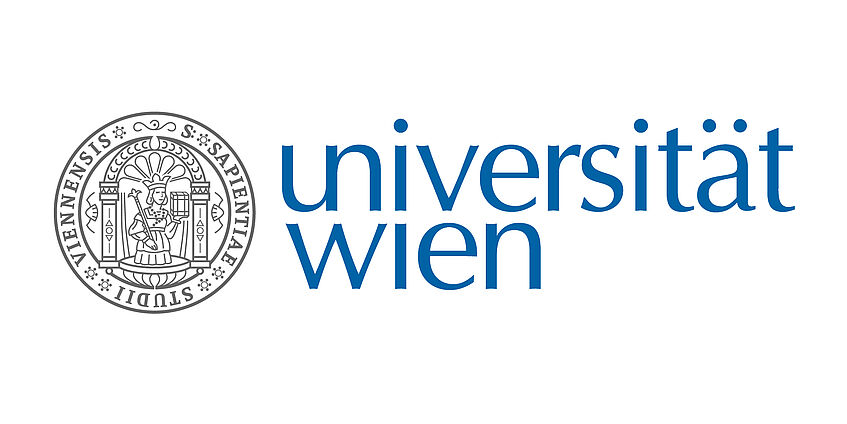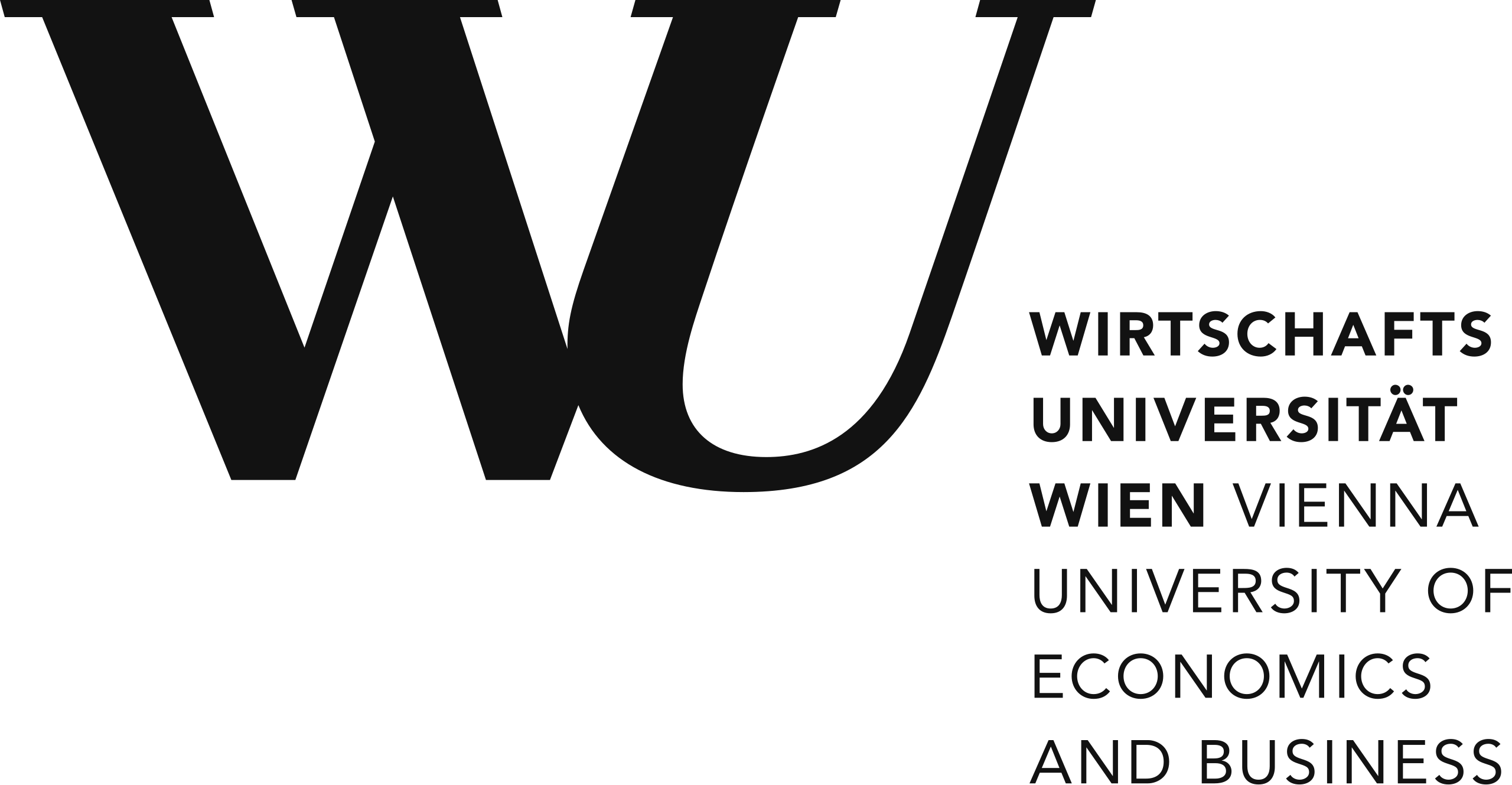Vienna Doctoral College on Digital Humanism: Call for Applications
Digital Humanism Doctoral College is seeking 5 PhD candidates.

On This Page
THE DEADLINE FOR APPLICATIONS HAS BEEN EXTENDED TO JANUARY 31, 2025
Digital technology profoundly shapes the world we live in by revolutionizing virtually all areas of human life. Therefore, it is paramount to identify and mitigate any undesirable effects of the currently ongoing digital transformation while also amplifying its positive impact on society. This is the mission of Digital Humanism, which deals with digital technology development and policies based on human rights, democracy, inclusion, and diversity.
The newly established Vienna Doctoral College on Digital Humanism invites applications from outstanding candidates eager to shape the future of this emerging interdisciplinary field. The Doctoral College is located across the TU Wien, University of Vienna, and WU Wien and its doctoral candidates tackle critical societal challenges arising from digital transformation. The Doctoral College offers a unique opportunity to conduct interdisciplinary research at the intersection of Informatics and Social Sciences/Humanities.
What to Expect?
Our mission is to educate the next generation of interdisciplinary scholars working on the impact digital technology has on society. The Vienna Doctoral College on Digital Humanism supports PhD projects addressing vital topics such as the future of democracy, misinformation, and privacy in a digital age, digital ecosystems, explainability in AI systems, systems respecting human autonomy and facilitating human self-efficacy and inclusive user designs, or strategies to foster AI adoption – applying interdisciplinary research methodologies. Our doctoral candidates and supervisors co-design research projects that align with the College’s vision and the Digital Humanism Roadmap 2022. Doctoral candidates will gain in-depth specialization in their chosen research areas while acquiring a broad understanding of methods and practices across disciplines. The Doctoral College emphasizes good scientific practices, ethics, diversity, and open science, preparing graduates for impactful careers in academia, industry, or public policy.
Each doctoral candidate within the Doctoral College will be employed by one of the three Vienna universities currently participating (TU Wien, University of Vienna, or WU Wien), and their research projects will be supervised by a supervisory team spanning at least two of these universities and at least two disciplines. Our supervisory teams include world-class experts on behavioural decision-making, labour science, applied AI, computational social science, political communication, and ethics of AI.
From the perspective of Digital Humanism, Artificial Intelligence (AI) should empower individuals and societies by enhancing human dignity, fostering inclusivity, and ensuring technologies serve the collective well-being rather than narrow interests. AI’s impact must be guided by ethical frameworks that prioritize transparency, accountability, and the preservation of human agency, ensuring that technological advancements contribute to a more equitable and sustainable future. Given the importance of understanding AI’s impact on society now, we are currently looking for PhD candidates for the following research topics:
1. Recommendations Explained: Towards Transparency and Fairness for Various Stakeholders
Recommender Systems operate in more complex scenarios than expressed in the simplified objective of “maximizing the consumer’s experience”. Platforms typically serve multiple stakeholders with different, possibly competing and conflicting interests. This doctoral project will investigate the needs, understandings, and expectations they have of Recommender Systems, e.g., with respect to transparency and fair outcomes and opportunities. The candidate will develop Recommender Systems that cater to these different needs and develop Explainable AI approaches able to communicate relevant aspects to different user groups, negotiating between transparency, privacy and business interests. The primary use case will be established within the area of music streaming, possibly with outreach to other domains.
This project is supervised by faculty at TU Wien, WU Wien, and University of Vienna.
2. Visualization of Argumentation Networks
The field of computational argumentation has seen substantial progress in recent years. Computational argumentation helps in shaping civil online public spheres by illustrating and promoting diverse views, and thus aligns well with the principles of digital humanism. However, these aims require systems that allow users to visualize argumentation scenarios and solutions and that provide powerful interaction mechanisms. In this project, we will
- Adapt and extend existing argumentation formalisms to allow for advanced user interfaces
- Develop layout objectives that ensure stability over time in dynamic settings and investigate interaction techniques that respect the mental map of users
- Apply state-of-the-art techniques from visual data analysis to address scalability and explainability.
We expect applications in mediation processes and analyses of multi-party discourses.
This project is supervised by faculty at TU Wien and University of Vienna.
3. AI Literacy and Inclusive User Design
Generative AI tools offer substantial potential to enhance productivity and generate significant economic value. However, their adoption and benefits are not uniformly distributed across population groups, highlighting a pressing need to address disparities in accessibility and usage. This research addresses two critical dimensions to foster equitable integration of AI technologies:
- The development of objective, robust methodologies for assessing AI literacy both on a societal/national as well as company level
- An in-depth analysis of user interaction patterns to inform the creation of inclusive AI tools that accommodate diverse user needs, leverage user efficacy and respect human autonomy.
By advancing these objectives, the project aims to promote equitable and widespread AI adoption, leveraging large-scale representative studies on AI literacy and usage, behavioural experiments, and UX user design.
This project is supervised by faculty at WU Wien and TU Wien.
4. AI as a Democratic Actor
This doctoral research project investigates how citizens form and adapt their understanding of AI as an important part of liberal democracy. While AI increasingly influences politics, such as during election campaigns or when political information is consumed online, many citizens are fearful of the impact it will have on their lives and future. There are also concerns that AI may have a detrimental impact on fundamental democratic processes, such as the transparency of decision- making and facticity of information. This project will use a combination of social science and data science methods to uncover how citizens’ understanding of the role of AI in democracy evolves, and the implications such understanding has for informed public discourse and democratic engagement.
This project is supervised by faculty at University of Vienna and WU Wien.
5. AI Innovation and Sustainability
This doctoral research project will address two key questions: how AI can be designed to minimize harm to planetary health and how AI systems can be developed to actively address existing sustainability challenges, such as the climate crisis, inequality, pollution, and resource depletion. A positive impact of this project is expected, among others, on the circular economy, recycling, and disaster mitigation. It takes into account that AI-related sustainability is not only a question of infrastructural efficiency but that scalable solutions necessitate the creative use of innovation to make AI an integral part of social life. The project employs a combination of quantitative social science methods and AI techniques to model sustainability solutions, study public perceptions of AI innovation, and analyse its political and economic implications.
This project is supervised by faculty at University of Vienna and TU Wien.
Your Qualification Profile
All doctoral candidates are expected to have the following qualifications as part of their profile:
- Strong interest in interdisciplinary research at the intersection of technology and society
- Ability to work independently and as part of a research team in a collaborative environment.
- Proven ability to manage complex projects, prioritize tasks, and meet deadlines.
- Excellent verbal communication skills for interdisciplinary collaboration and presenting research findings.
- Excellent English skills, both written and spoken
In addition, the following specific requirements apply for those interested in the current call for applications:
Recommendations Explained: Towards Transparency and Fairness for Various Stakeholders:
- Relevant Master’s degree (e.g., Computer Science/Informatics, Information Systems/Business Informatics, Data Science, Computational Economics)
- Desired: Knowledge of machine learning, ideally XAI methods, experimental design, statistical analysis, and hypothesis testing, with experience in programming languages such as Python or R
- Knowledge of OR interest in these areas: Recommender systems and/or music retrieval, user research and qualitative social science research methods, theories of privacy, fairness, and other relevant concepts, behavioural / experimental economics
Visualization of Argumentation Networks:
- Relevant Master’s degree (e.g., Mathematics, Computer Science/Informatics, Computational Social Science)
- Desired: Knowledge of Symbolic AI methods, in particular in the area of computational argumentation; experience in programming; experience in visual data analysis methods
- Knowledge of OR interest in these areas: Formal methods in Computer Science, human-computer interaction (esp. data visualization), decision support / explainable AI, communication sciences, digitized public spheres, Cognitive Science, Psychology
AI Literacy and Inclusive User Design:
- Relevant Master’s degree (e.g., Psychology, Computational Social Science, Data Science, Human-Computer Interaction, Artificial Intelligence, Information Systems/Business Informatics, or related disciplines)
- Proficiency in statistical analysis and hypothesis testing (e.g., SPSS, R, or Python)
- Experience in AI frameworks (e.g., TensorFlow, PyTorch) and user-centred design principles and prototyping tools (e.g., Figma, Adobe XD) is considered an asset
- Knowledge of OR strong interest in these areas: AI-related technologies, including understanding of algorithmic bias and ethical considerations in AI; quantitative social science research methods (e.g., surveys, experimental designs, content analysis, computational approaches); training program designs, and/or inclusive design frameworks and accessibility standards
- Familiarity with experimental design, usability testing, and user experience (UX) evaluation is beneficial
AI as a Democratic Actor:
- Relevant Master’s degree (e.g., Computer Science/Informatics, Data Science, Business Informatics, Human-Computer Interaction, Artificial Intelligence, Computational Social Science, Social Sciences, or related disciplines)
- Proficiency in statistical analysis and hypothesis testing, with knowledge of or strong interest in statistical data analysis (using, e.g., R, Stata, SPSS) and/or experience in software such as Python
- Experience in AI frameworks (e.g., TensorFlow or PyTorch)
- Knowledge of OR strong interest in these areas: Machine learning/artificial intelligence and explainable artificial intelligence; quantitative social science research methods (e.g., surveys, experimental designs, content analysis, and computational approaches); aspects of fair, accountable, and transparent AI, including understanding of algorithmic bias and ethical considerations in AI
- Familiarity with large language models, recommender systems, and survey study design is beneficial
AI Innovation and Sustainability:
- Relevant Master’s degree (e.g., Political Science, Sociology, Communication Science, Computational Social Science, Environmental Science, Data Science, Computer Science/Informatics, Artificial Intelligence, Business Informatics, Human-Computer Interaction, or related disciplines)
- Proficiency in statistical analysis and hypothesis testing (using, e.g., R, Stata, SPSS) and/or experience in software such as Python
- Knowledge of OR strong interest in these areas: Machine learning-based AI frameworks (e.g., TensorFlow, PyTorch) or symbolic AI systems; explainable AI approaches; quantitative social science research methods (e.g., survey, experimental designs, content analysis, computational approaches including network or simulation models); sustainability issues and AI development, including the impact of technology on planetary health, equality, and resource management
What we offer
The Doctoral College serves as a hub for Digital Humanism research, promoting a strong scholarly community in Vienna. Collaboration is supported by innovative strategies, including interdisciplinary supervision, shared working spaces, and regular seminars featuring international experts.
- Truly interdisciplinary work environment, defined by an interdisciplinary faculty across three top universities, as well as doctoral projects that are supervised and conducted across disciplines and institutions.
- Further training & Coaching: Opportunity to deepen your skills on an ongoing basis. The Doctoral College will offer all candidates a bespoke doctoral training plan.
- Fair salary: The monthly gross salary is EUR 2,684.10, 14 times/year for 30 hours/week (corresponding to 75% of a full position), starting March 1, 2025, 1+3 years.
- Inspiring working atmosphere: You are a part of an interdisciplinary and international academic team in a healthy and fair working environment.
- Work-life balance: Employees at the host institutions enjoy flexible working hours and can partially work remotely.
- Good public transport connections: Your workplace is easily accessible by public transport.
- Equal opportunities for all: We welcome every additional/new personality to the team
Application
Do you want to join the Vienna Doctoral College on Digital Humanism?
Join us in shaping Digital Humanism, addressing societal challenges of the digital era, and establishing Vienna as a global centre for interdisciplinary research. Applications are welcome from candidates with diverse academic backgrounds who are ready to contribute to this transformative initiative.
Please submit the following documents as a single PDF document (entitled: SURNAME, FIRST NAME) by January 31st, 2025 using the following email address: dighum-dc-applications@ec.tuwien.ac.at
Important: Interested candidates may apply to more than one topic and must indicate their choice and preference in their Letter or Motivation (see below). In the subject line of your application email, please indicate which topic(s) you are applying for (e.g., “Application for Topics 3 and 5”; “Application for Topic 1”).
The following documents must be submitted (in English) in your application
- Letter of motivation (detailing previous research achievements, research goals, career plans); Please clearly specify which topic/topics you apply for and motivate your choice as well as how and to what extent your profile covers the expectations for that/those topic/s. If you are applying for more than one topic, please also include a preference ranking.
- A complete CV, including a list of previous scientific expertise, awards, grants, stays abroad, attended lectures, attended summer schools, attended workshops, skills, and publications (if applicable);
- Abstract in English of your MA/MSc thesis, BA/BSc thesis, or of a research project you were involved in;
- A complete list of finalised studies and transcripts of all grades;
- 1-2 names of academic references and their contact addresses (e.g., your Master’s thesis supervisor);
- Any other material you think is relevant.
Interviews will be held online starting in the week of February 10th, 2025 (calendar week 7).
If you have any questions, please contact the coordinators of the Doctoral College, Peter Knees (TU Wien), Sophie Lecheler (University of Vienna) and Marta Sabou (WU Wien) using the Doctoral College email address: dighum-dc@ec.tuwien.ac.at





